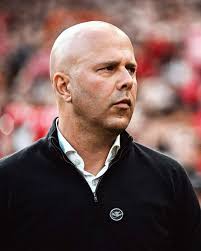The Journey of the Current Liverpool Manager

Introduction
The role of the Liverpool manager is one of the most prestigious in football, steeped in tradition and expectation. As the team faces an evolving landscape of competition and fan scrutiny, the manager’s decisions and strategies become pivotal in shaping not only the performance of the team but also the morale of supporters. With the start of the new season, the current Liverpool manager is under pressure to build on past successes while navigating new challenges.
Recent Performance and Challenges
This season has not been without its difficulties for the Liverpool manager, who has been tasked with addressing inconsistencies in performance. Early in the season, the club faced defeats against key rivals but has since focused on tactical adjustments and squad rotation to improve results. Injuries to key players have further complicated these efforts, necessitating a deep bench and creative solutions in strategy. The manager has been proactive in implementing a blend of youth and experience, aiming to strengthen the squad’s resilience.
Key Achievements and Expectations
Despite the challenges, there have been notable achievements this season. The manager has secured important wins in domestic cups and has remained competitive in the league standings. These victories are crucial not only for points but also for boosting team confidence moving forward. Additionally, the manager’s ability to inspire and elevate talent from the academy has been commendable, showcasing a commitment to developing homegrown players and integrating them into the first team.
Future Outlook
Looking ahead, the Liverpool manager is optimistic regarding the club’s prospects. With a series of upcoming fixtures against mid-table teams, there’s a strong belief that the team can capitalize on this opportunity to secure much-needed points. Moreover, discussions surrounding potential January transfer market activities are underway, with hopes of reinforcing the squad. The manager’s strategic foresight and leadership style will be crucial as Liverpool aims to reclaim its highest competitive stature.
Conclusion
The journey of the current Liverpool manager reflects the complexities and responsibilities associated with leading one of football’s most storied clubs. As challenges arise, the manager’s tactical acumen and ability to inspire both players and fans will be pivotal in achieving success. The significance of this leadership role extends beyond the pitch, shaping the club’s identity and future in a competitive league landscape.









